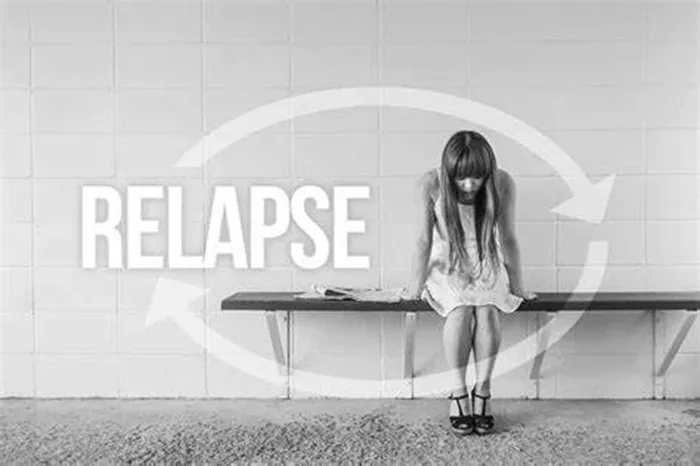In the realm of mental health, the term “high acuity” is often used to describe cases that are complex, severe, and require intensive treatment and management. Understanding what high acuity means in mental health is essential for healthcare professionals, patients, and their families, as it impacts the approach to care, treatment planning, and resource allocation. This comprehensive article delves into the concept of high acuity in mental health, exploring its definition, characteristics, implications for treatment, and the importance of a multidisciplinary approach.
Defining High Acuity in Mental Health
High acuity in mental health refers to the severity and complexity of a patient’s condition, indicating a need for intensive and specialized care. Patients with high acuity mental health issues often present with multiple, severe symptoms that significantly impair their daily functioning and quality of life.
Severity of Symptoms
High acuity mental health cases are characterized by the severity of symptoms. This can include intense mood disturbances, such as severe depression or mania, profound anxiety, acute psychotic episodes, or severe behavioral issues. These symptoms often pose immediate risks to the individual’s safety and well-being, necessitating urgent intervention.
Complexity of Diagnosis
The complexity of diagnosis is another hallmark of high acuity in mental health. Patients may have multiple co-occurring mental health disorders, known as comorbidities, which complicate the diagnostic process. For example, a patient might suffer from both severe depression and a substance use disorder, making treatment more challenging.
Impairment in Functioning
High acuity mental health conditions significantly impair an individual’s ability to function in daily life. This impairment can affect various aspects of life, including work, relationships, self-care, and overall social functioning. The degree of impairment often necessitates intensive and sustained therapeutic interventions.
Common Conditions Associated with High Acuity
Several mental health conditions are commonly associated with high acuity due to their severity, complexity, and the level of care required.
1. Severe Mood Disorders
Severe mood disorders, such as major depressive disorder and bipolar disorder, are often classified as high acuity. These conditions can lead to extreme mood swings, debilitating depression, and mania, significantly impairing an individual’s ability to function.
2. Major Depressive Disorder
Major depressive disorder (MDD) can reach a level of severity that necessitates high acuity care, particularly when symptoms include suicidal ideation, psychomotor retardation, and severe cognitive impairments.
3. Bipolar Disorder
Bipolar disorder, characterized by alternating episodes of depression and mania, can also present with high acuity. The manic phases can involve risky behaviors, psychosis, and severe functional impairment, while depressive episodes can lead to profound lethargy and suicidal tendencies.
4. Psychotic Disorders
Psychotic disorders, such as schizophrenia, are typically high acuity due to the intense and debilitating nature of symptoms like hallucinations, delusions, and disorganized thinking.
5. Schizophrenia
Schizophrenia often requires high acuity care, particularly during acute psychotic episodes. These episodes can involve severe disruptions in reality perception, making it challenging for individuals to function without significant support.
6. Severe Anxiety Disorders
Severe anxiety disorders, including panic disorder and post-traumatic stress disorder (PTSD), can also fall under high acuity, particularly when they result in significant distress and functional impairment.
7. Panic Disorder
Panic disorder, characterized by recurrent and unexpected panic attacks, can become high acuity if the frequency and severity of attacks severely disrupt daily life and lead to complications like agoraphobia.
8. Post-Traumatic Stress Disorder
PTSD can reach high acuity levels when symptoms such as flashbacks, severe anxiety, and avoidance behaviors profoundly impact an individual’s ability to function.
9. Substance Use Disorders
Substance use disorders (SUDs) often intersect with other high acuity mental health conditions, requiring comprehensive and integrated treatment approaches.
Dual Diagnosis
A dual diagnosis of SUD and another mental health disorder increases the complexity and severity of the condition, necessitating high acuity care to address both issues simultaneously.
Implications for Treatment
The high acuity nature of certain mental health conditions necessitates specialized treatment approaches that are intensive, multidisciplinary, and tailored to the individual’s unique needs.
Intensive Outpatient Programs (IOPs)
Intensive outpatient programs (IOPs) provide a structured treatment environment for high acuity patients who do not require 24-hour supervision but still need intensive therapeutic support.
Components of IOPs
IOPs typically include a combination of individual therapy, group therapy, medication management, and support groups. These programs are designed to provide comprehensive care while allowing patients to maintain some level of independence.
Inpatient and Residential Treatment
Inpatient and residential treatment programs are often necessary for individuals with extremely high acuity mental health conditions that pose immediate risks to their safety and well-being.
Benefits of Inpatient Care
Inpatient care offers 24-hour supervision, intensive therapeutic interventions, and a safe environment for individuals experiencing severe symptoms. This level of care is crucial for stabilizing patients and preventing harm.
Medication Management
Medication management is a critical component of treating high acuity mental health conditions. Psychopharmacology can help manage severe symptoms and stabilize mood, making other forms of therapy more effective.
Role of Psychiatrists
Psychiatrists play a key role in assessing, prescribing, and monitoring medications to ensure optimal therapeutic outcomes. Close monitoring is essential to adjust dosages and manage potential side effects.
Psychotherapy and Counseling
Psychotherapy and counseling are integral to the treatment of high acuity mental health conditions, providing individuals with coping strategies, emotional support, and tools for managing symptoms.
Cognitive Behavioral Therapy (CBT)
Cognitive Behavioral Therapy (CBT) is commonly used for high acuity patients, focusing on identifying and changing negative thought patterns and behaviors. CBT is effective for a range of conditions, including depression, anxiety, and PTSD.
Dialectical Behavior Therapy (DBT)
Dialectical Behavior Therapy (DBT) is particularly beneficial for individuals with high acuity conditions such as borderline personality disorder. DBT combines cognitive-behavioral techniques with mindfulness practices to help patients regulate emotions and improve interpersonal relationships.
Family Therapy
Family therapy is often necessary for high acuity cases, as family dynamics can significantly impact an individual’s mental health. Engaging family members in the treatment process can improve outcomes and provide a support system for the patient.
Challenges in Managing High Acuity Mental Health Conditions
Managing high acuity mental health conditions presents several challenges, including resource limitations, stigma, and the need for specialized training.
Resource Limitations
High acuity mental health care often requires significant resources, including specialized facilities, trained professionals, and funding. Limited resources can hinder the ability to provide adequate care and support for high acuity patients.
Stigma and Discrimination
Stigma and discrimination associated with mental health conditions can prevent individuals from seeking help and accessing necessary services. Addressing stigma through education and advocacy is crucial for improving care and support for high acuity patients.
Need for Specialized Training
Healthcare professionals working with high acuity patients require specialized training to effectively manage complex and severe mental health conditions. Ongoing education and training are essential for ensuring that professionals are equipped with the latest knowledge and skills.
Conclusion
High acuity in mental health signifies severe and complex conditions that require intensive and specialized care. Understanding the characteristics and implications of high acuity is essential for providing effective treatment and support. A multidisciplinary approach, involving collaboration among healthcare professionals, integrated care models, and comprehensive case management, is crucial for addressing the unique needs of high acuity patients. Despite the challenges, with the right resources, training, and support, individuals with high acuity mental health conditions can achieve improved outcomes and a better quality of life.
[inline_related_posts title=”You Might Be Interested In” title_align=”left” style=”list” number=”6″ align=”none” ids=”9680,9631,9628″ by=”categories” orderby=”rand” order=”DESC” hide_thumb=”no” thumb_right=”no” views=”no” date=”yes” grid_columns=”2″ post_type=”” tax=””]































